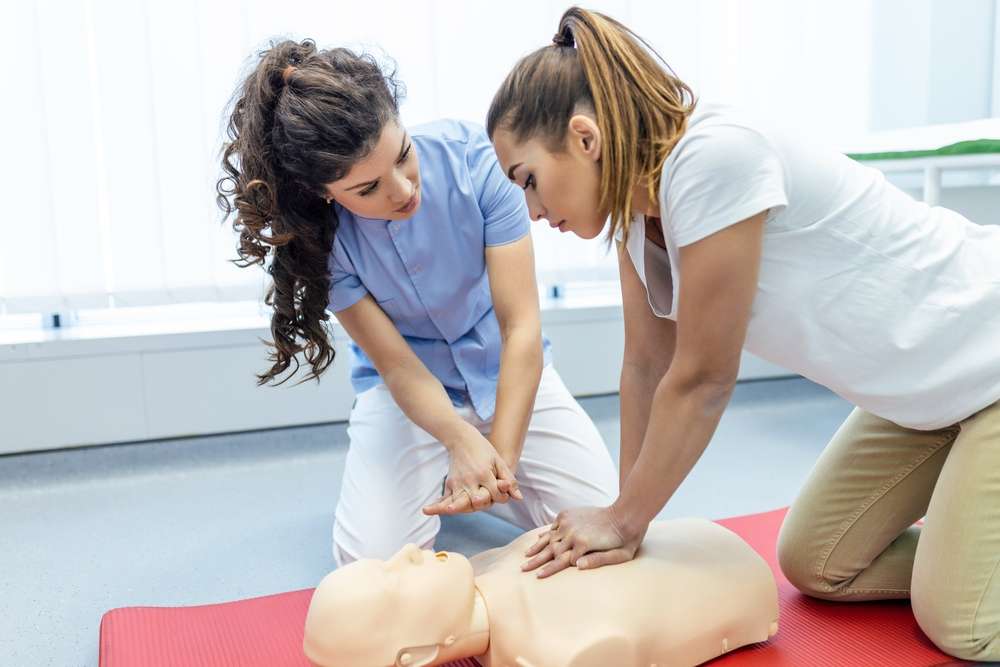Nursing Training in Germany: Discover Career Paths in Healthcare
For individuals living in Germany who speak English or German, nursing training offers strong career prospects in the healthcare field. Programs such as Pflegeausbildung combine theoretical education with practical experience, preparing future nurses with the skills needed to work in hospitals, clinics, and care facilities throughout Germany.

Nursing in Germany has undergone significant transformation in recent years, with the country’s healthcare system placing increasing value on well-trained nursing professionals. The German approach to nursing education emphasizes both theoretical foundations and practical skills development, creating versatile healthcare professionals capable of working across various settings. Whether you’re considering relocating to Germany for nursing studies or are already in the country exploring career options, understanding the structured pathways and requirements is essential for making informed decisions about your healthcare career journey.
Understanding Comprehensive Nursing Training Programs in Germany
The nursing education landscape in Germany was significantly reformed in 2020 with the introduction of the Nursing Professions Act (Pflegeberufegesetz). This legislation established a unified nursing education system that combines previously separate tracks for general nursing, pediatric nursing, and geriatric care into a comprehensive program. The standard qualification path is a three-year vocational training program that includes classroom instruction at nursing schools (Pflegeschulen) alongside practical training in hospitals, outpatient care services, and other healthcare facilities.
The generalist training approach ensures that graduates possess versatile skills applicable across different healthcare settings. During the final year, students can choose to continue with general nursing education or specialize in pediatric or geriatric nursing. This flexibility allows nursing students to tailor their education to their career interests while maintaining a solid foundation in comprehensive care principles.
Career Paths and Opportunities in German Healthcare
Nursing professionals in Germany can pursue diverse career paths within the healthcare system. Hospital nursing remains one of the most common routes, with opportunities in specialized departments such as intensive care, emergency medicine, surgery, oncology, and pediatrics. Outside hospital settings, nurses find rewarding careers in rehabilitation centers, outpatient clinics, home care services, and nursing homes.
For those interested in advancing their careers, Germany offers various specialization and advanced training options. Specialized qualifications (Fachweiterbildungen) are available in areas like intensive care, anesthesia, psychiatric care, and oncology nursing. These additional qualifications typically require one to two years of further education and significantly enhance career prospects and earning potential.
Leadership positions such as ward management (Stationsleitung) or nursing management (Pflegedienstleitung) are accessible to those with appropriate experience and additional qualifications in healthcare management. Academic advancement through bachelor’s and master’s degrees in nursing science, healthcare management, or nursing education opens doors to research, teaching, and administrative roles.
Training Requirements for Aspiring Nurses
To begin nursing training in Germany, applicants must meet several prerequisites. The basic requirement is a secondary school certificate (Realschulabschluss or equivalent) with at least ten years of general education. Some nursing schools may require a higher-level qualification or specific grades in subjects like biology or German. For international applicants, German language proficiency at B2 level is typically required, as communication with patients and colleagues is a crucial aspect of nursing care.
The standard nursing training program (Pflegeausbildung) spans three years and combines theoretical education with practical training. The theoretical component covers anatomy, physiology, nursing techniques, pharmacology, ethics, and communication skills. Practical training involves rotations through various healthcare settings, providing hands-on experience under supervision. Throughout the program, students receive a training allowance (Ausbildungsvergütung), which increases each year and helps offset living expenses during the training period.
Upon completion of the training program, graduates must pass a state examination consisting of written, oral, and practical components to obtain their nursing license (Pflegeexamen). This qualification is recognized throughout Germany and, under certain conditions, across the European Union.
Skills Development for Future Healthcare Professionals
Beyond technical nursing skills, German nursing education emphasizes the development of a comprehensive skill set that prepares professionals for the multifaceted challenges of modern healthcare. Critical thinking and problem-solving abilities are fostered through case studies and practical scenarios that require nurses to assess situations, identify priorities, and implement appropriate interventions.
Communication skills receive particular attention, as nurses must effectively interact with patients, families, and interdisciplinary healthcare teams. Cultural competence is increasingly important in Germany’s diverse society, with nursing education incorporating training on providing culturally sensitive care to patients from various backgrounds.
Digital literacy has become an essential component of nursing education, with electronic documentation systems, telehealth technologies, and digital monitoring devices becoming standard in German healthcare facilities. Nursing programs now include training on healthcare informatics and the ethical use of technology in patient care.
Educational Institutions and Training Costs
Nursing education in Germany is offered by various institutions, including vocational nursing schools (Pflegeschulen) affiliated with hospitals, independent nursing academies, and universities of applied sciences (Fachhochschulen). The traditional vocational route remains the most common path, though academic nursing programs at universities are gaining popularity, especially for those interested in advanced practice roles or research.
| Institution Type | Program Duration | Qualification | Approximate Costs |
|---|---|---|---|
| Vocational Nursing School | 3 years | State Examination in Nursing | Training allowance provided (€1,100-1,300/month) |
| University of Applied Sciences | 3-4 years | Bachelor of Science in Nursing | €0-500 per semester + living expenses |
| Specialized Academies | 1-2 years (post-qualification) | Specialist Certification | €2,000-5,000 total |
| Universities | 2 years (post-qualification) | Master’s in Nursing Science | €0-1,500 per semester + living expenses |
Prices, rates, or cost estimates mentioned in this article are based on the latest available information but may change over time. Independent research is advised before making financial decisions.
One significant advantage of the vocational nursing training in Germany is that students receive a training allowance rather than paying tuition fees. This allowance typically ranges from approximately €1,100 in the first year to €1,300 in the third year, though exact amounts vary by federal state and institution. For academic nursing programs at universities, semester fees are relatively low compared to many other countries, typically ranging from €0 to €500 per semester, depending on the institution and federal state.
Additional costs to consider include learning materials, appropriate clothing for practical training, and potential housing costs if students need to relocate. Various financial support options are available, including BAföG (federal education assistance), scholarships, and student loans, making nursing education accessible to qualified candidates regardless of financial background.
Germany’s nursing education system offers a structured yet flexible pathway to a rewarding healthcare career. With its combination of theoretical knowledge and practical experience, graduates emerge well-equipped to provide high-quality care in various healthcare settings. The recent reforms have modernized nursing education to meet the evolving demands of healthcare delivery while creating more opportunities for specialization and advancement. For those passionate about making a difference in people’s lives, nursing in Germany represents a profession with strong job security, diverse career paths, and the satisfaction of contributing meaningfully to society’s wellbeing.




